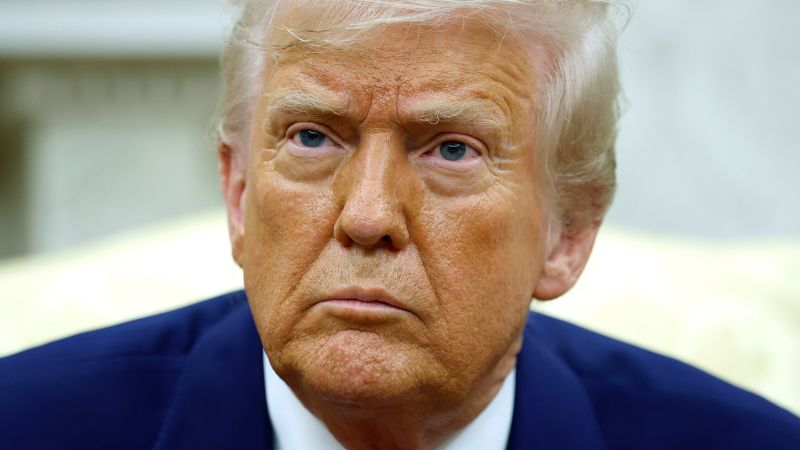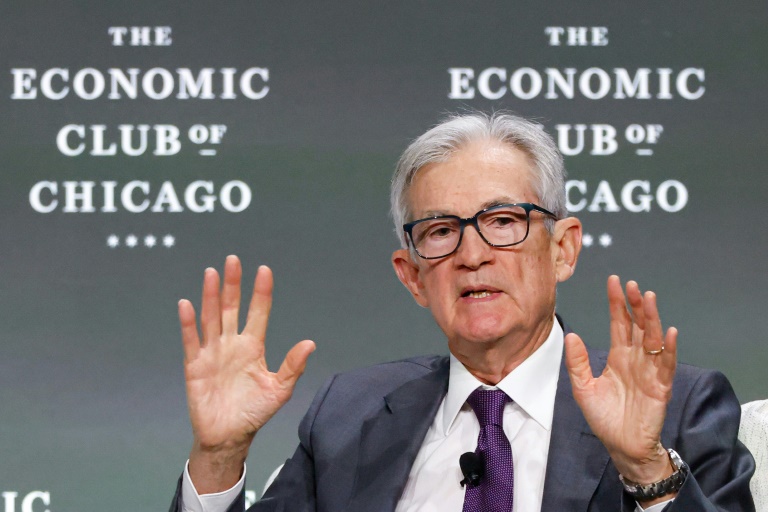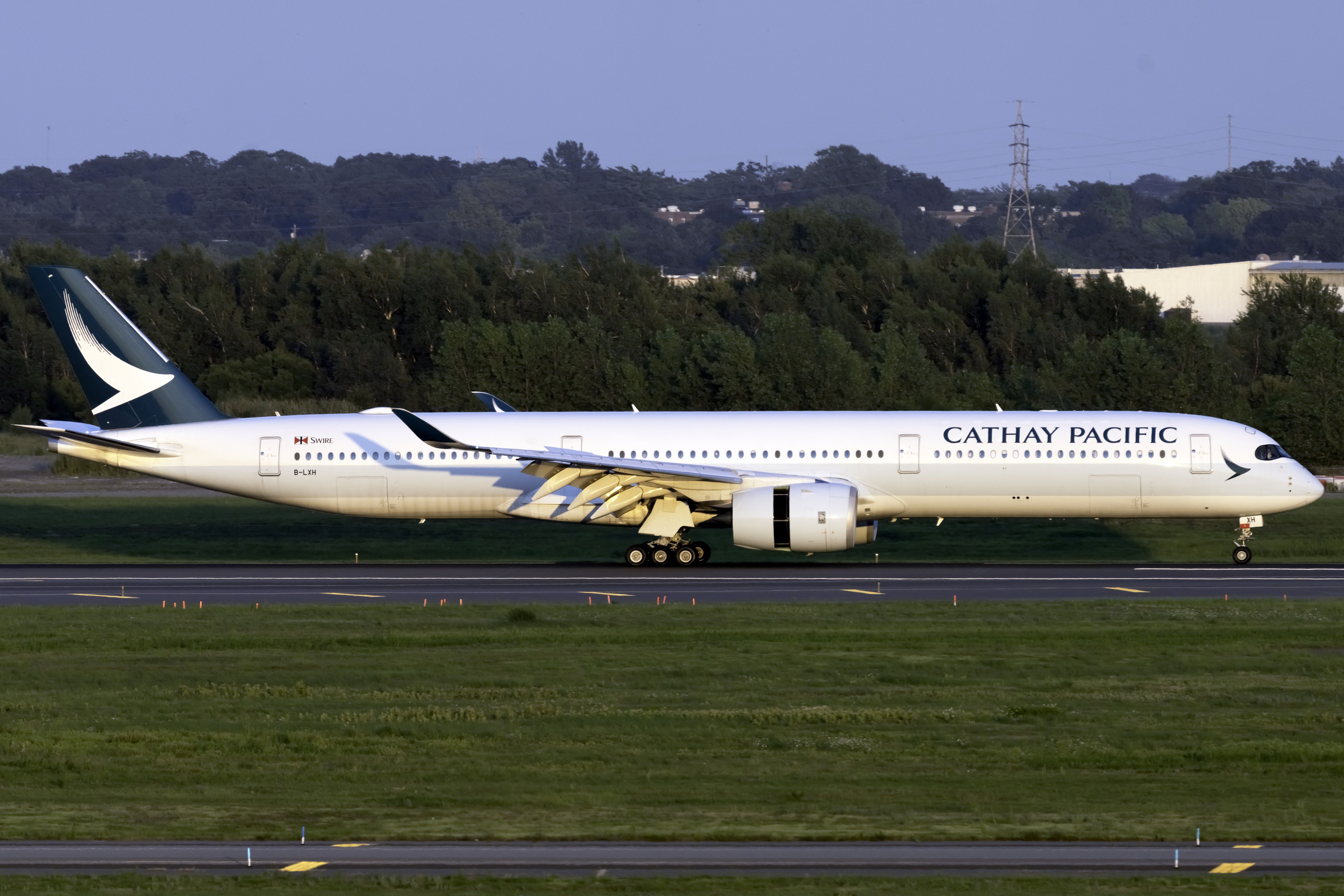Trump’s sweeping tariffs are now in effect. Here's the latest Despite rattled financial markets, threats of retaliation, and some of Donald Trump’s biggest supporters encouraging him to back off his signature economic policy, the president didn’t give in. His administration piled on tariffs at midnight on dozens of allies and adversaries alike, aiming to — as he claims — restore fairness and boost American manufacturing.
Goods from China, by far the biggest target, are now subject to at least a 104% tariff. Tariffs also went into effect on about 60 other countries. Trump has instructed his trade team to make “tailor-made” deals with leaders who want to negotiate.

Here’s what you should know : China hit hardest: Imports to the US from China are now subject to a minimum 104% tariff. Trump tacked on even higher tariffs than initially announced after Beijing didn’t back off its promise to impose 34% retaliatory tariffs. Trump also signed an executive order tripling tariffs on goods worth less than $800 from China.
This will impact Americans who order from sites like Shein, Temu and AliExpress . China not backing down: Beijing has not announced immediate retaliatory measures against Trump’s latest round of levies. But so far, the message from the Chinese government, state media and opinion leaders alike has been one of defiance – and determination to strike back .
Counter tariffs: Canada’s retaliatory tariffs on some US vehicles came into effect at midnight . The 25% tariff applies to vehicles not covered by the US-Mexico-Canada Free Trade agreement. “Tailored” deals: Trump said countries are calling him and “kissing my a**” to try and make a trade deal.
Delegations from Japan and South Korea are en route. Italy’s prime minister will be in Washington next week. And the European Union told the US it is prepared to negotiate over buying more natural gas .
Global stock slump: Asian and European stocks traded lower and US stock futures tumbled after the tariffs hit. With several trillion dollars in the market value of US stocks wiped away in the week since Trump announced the tariffs, forecasts of an outright global recession have grown. Disputes in Trump’s orbit: A dispute has escalated between Elon Musk and senior trade adviser Peter Navarro over tariffs.
Musk called Navarro a “moron” after he dismissed the Tesla founder as a “car assembler.” The White House said it will let the “public sparring continue,” with spokesperson Karoline Leavitt saying, “boys will be boys.” iPhones could triple in price: A tech analyst has warned that the price of an Apple iPhone could soar to around $3,500 if they were made in the US .
Exclusive for subscribers : South Korea’s leader is taking a different approach to Trump’s tariffs than China China vows countermeasures after Trump’s 104% tariffs take effect China has promised to take “resolute and effective measures” to safeguard its rights and interests after US President Donald Trump’s 104% tariffs on Chinese imports took effect on Wednesday. “The United States is still imposing arbitrary tariffs on China and relentlessly applying extreme pressure. China firmly opposes and will never accept such domineering and bullying behavior,” Chinese Foreign Ministry spokesperson Lin Jian said.
“If the US disregards the interests of both countries and the international community and insists on waging a tariff war and trade war, China will fight to the end.” Chinese Foreign Ministry spokesperson Lin Jian US levies on Chinese imports had been set to increase by 34% on Wednesday as part of Trump’s “reciprocal” tariffs package. But the president tacked on another 50% after Beijing didn’t back down on its promise to impose 34% retaliatory tariffs on US goods by noon Tuesday.
Prior to the latest round of escalation, Trump had already imposed 20% levies on China since his return to the White House. “The legitimate right to development of the Chinese people cannot be deprived, and China’s sovereignty, security, and development interests cannot be infringed upon,” Lin said. Beijing has not announced immediate retaliatory measures against Trump’s latest round of levies.
But so far, the message from the Chinese government, state media and opinion leaders alike has been one of defiance – and determination to strike back. If they're made in the US, iPhones could triple in price US President Donald Trump has boasted “jobs and factories will come roaring back” as he unleashed unprecedented tariffs around the world last week. With his sweeping global tariffs now in effect, steep price hikes on products ranging from clothing to electronics could largely be borne by American consumers.
A prominent tech analyst has warned that the price of an Apple iPhone could soar to around $3,500 if they were made in the US. The president and his economic officials have promised that, as a result of the tariffs, numerous manufacturing jobs will eventually be “reshored” to US, employing millions of Americans. But Dan Ives, global head of technology research at financial services firm Wedbush Securities, told CNN’s Erin Burnett that the idea is a “fictional tale.
” US-made iPhones could cost more than three times their current price of around $1,000, he added, because it would be necessary to replicate the highly complex production ecosystem that currently exists in Asia. “You build that (supply chain) in the US with a fab in West Virginia and New Jersey. They’ll be $3,500 iPhones,” he said, referring to fabrication plants, or high-tech manufacturing facilities where computer chips that power electronic devices are normally made.
And even then, it would cost Apple about $30 billion and three years to move just 10% of their supply chain to the US to begin with, Ives told Burnett on Monday. Some background: The making and assembly of smartphone parts shifted to Asia decades ago, as American companies largely focused on software development and product design, which generate much higher profit margins. That move has helped make Apple one of the world’s most valuable companies and cement itself as a dominant smartphone maker.
South Korea announces $1.3 billion emergency support for auto industry South Korea has announced $1.3 billion in emergency support measures for its auto industry as it seeks to mitigate the blow of the Trump administration’s tariffs.
Unveiling the package on Wednesday, the government cited concerns over “serious threats” that the US tariffs pose to its automotive industry, alluding particularly to small-and-medium firms that manufacture auto parts. The Trump administration previously announced 25% tariffs on all imported cars and auto parts, including those from its allies, dealing a blow to South Korea’s major carmaker Hyundai and its affiliate Kia. Most South Korean auto parts manufacturers lack the capacity to absorb the shock, the Ministry of Trade, Industry and Energy said .
It warned against a “chain reaction” involving reduced exports to the US, increased tariff burdens and blows to production and jobs. The government also announced that an electric vehicle subsidy program will continue through the end of this year, and that government subsidies will be significantly expanded. It would consider further financial aid to the wider industry, the trade ministry said.
Some context: Last year, South Korea exported $34.7 billion worth of automobiles to the US, which accounted for 49% of its total auto exports. During the same period, the country also exported $8.
2 billion of auto parts to the US, according to its trade ministry..
















